“We cremated 140 bodies of those who died of COVID 19 in the past one month”
By providing a dignified cremation to those who have succumbed to the COVID-19 pandemic, the Roti Kapda initiative, in Udgir in Maharashtra, spreads hope and a sense of closure to families who are unable to perform the last rites of their dear ones due to the restrictions.
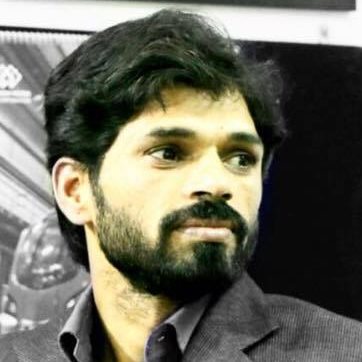

The team has been cremating the bodies of those who died due to COVID. It also provides food to the needy. Photo: By arrangement
Gaus Sheikh did not answer his mobile phone for a long time. When Gaon Connection finally got through to him, the 33-year-old said he was driving an ambulance. The ambulance bore the body of Rachappa Kulkarn to her village Kamalnagar from Udgir, where she had to be cremated. “We have cremated a hundred and forty such bodies, in and around Udgir, in the past one month,” he told Gaon Connection.
Sheikh and his team are part of The Salat Minorities Welfare Society set up in 2016, which has 50 active members. Sheikh is its secretary.
The welfare society through an initiative called the Roti Kapda bank has been ferrying the bodies of those who have died in the Coronavirus pandemic, and cremating them. Besides this, it has also been arranging food for the hungry.
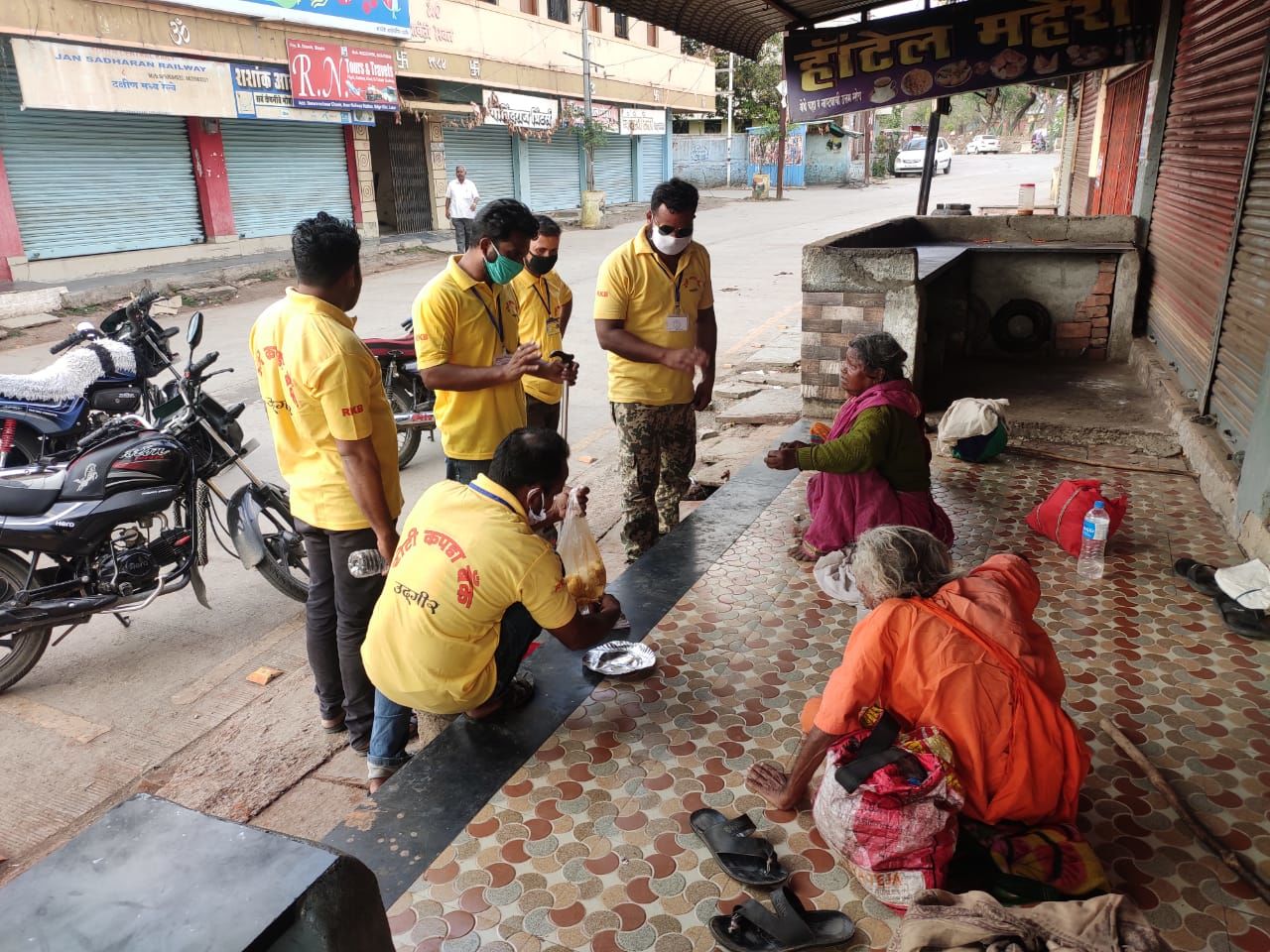
“Family members fear touching the bodies of their near and dear ones who have succumbed to COVID-19. Even in a small town like Udgir, ten to twenty people are dying every day,” said Sheikh. It is the same situation in villages.
Udgir in Maharashtra lies about 600 kilometres from Mumbai, the state capital. It falls in Latur district, infamous for its severe droughts and water scarcity. But this time, it is the COVID-19 pandemic that has been its scourge.
“Ten of us in the family were down with COVID-19 and quarantined. My grandmother died and there was no one to perform her last rites,” Aditi Patil, a social worker, told Gaon Connection. Sheikh and his team did the needful.
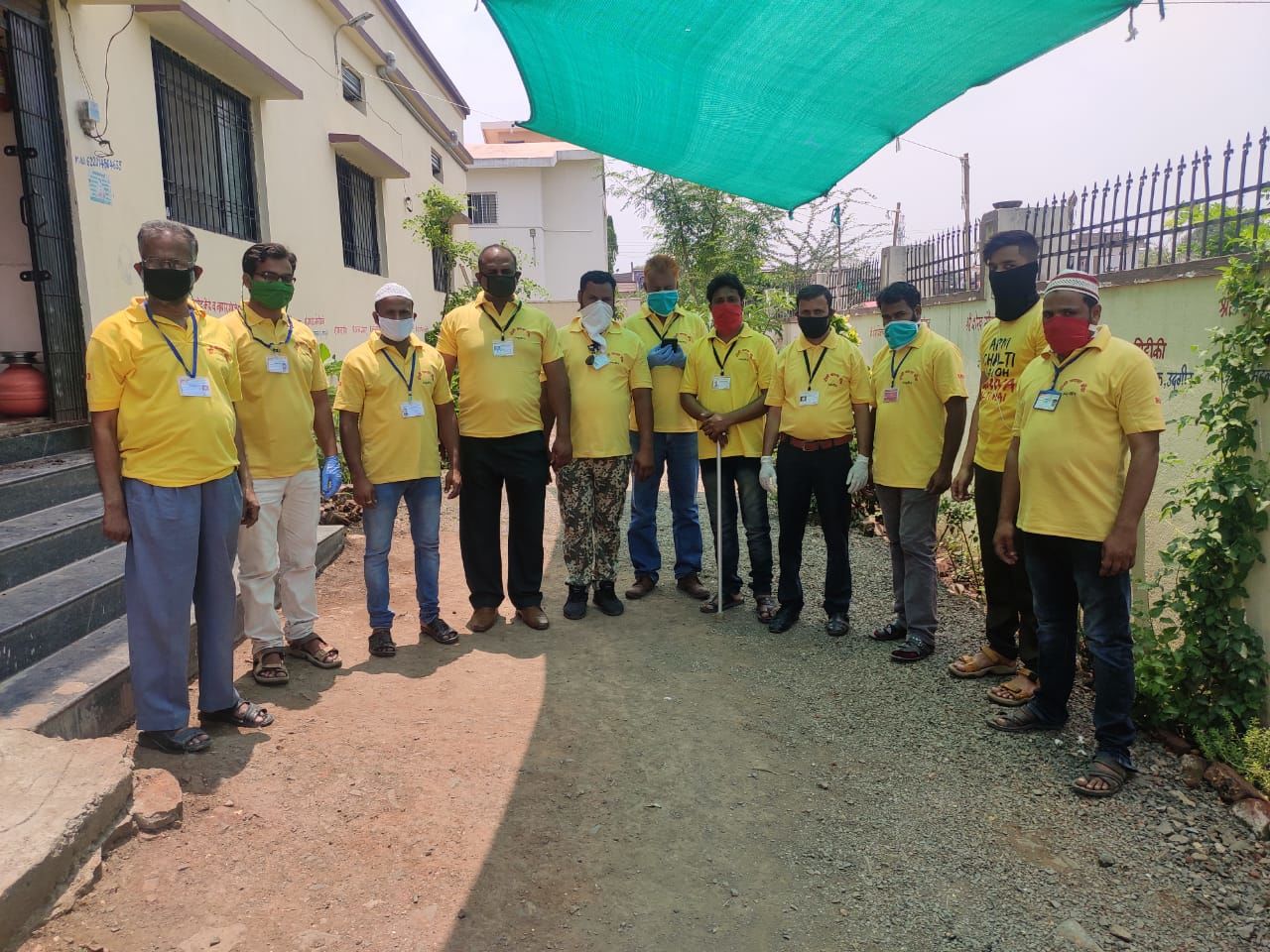
Aditi Patil belongs to the Lingayat community that normally buries its dead, but because of the contagion, cremation is the preferred way. “Our locality is dominated by Lingayat and Muslim communities, and both bury their dead, but no one is taking a risk in view of the pandemic,” she explained.
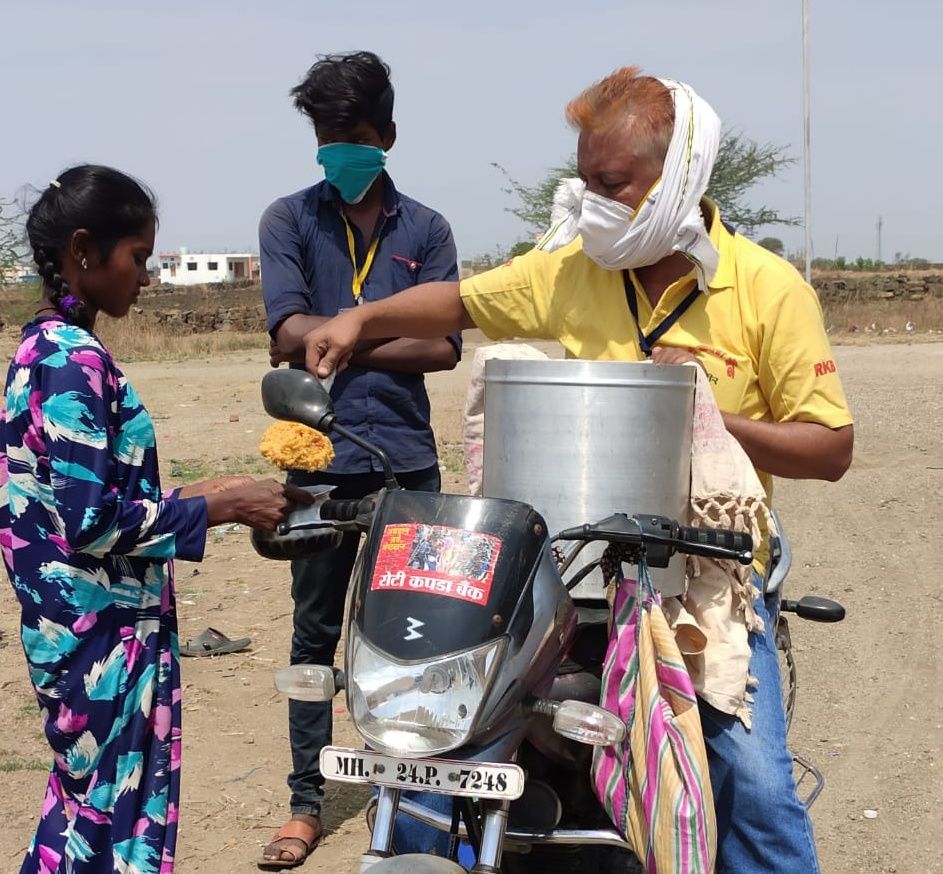
Roti Kapda bank
While the state government provides hot water and food to the patients at the government hospitals, there is no arrangement for their attendants. Sheikh and his team step in and arrange food for the attendants of the COVID-19 patients.
The Roti Kapda bank has been running on the largess of friends and well wishers, said Sheikh. “We have never fallen short of money. And, instead of sending money to mosques or temples, we prefer being in the service of humanity,” he said.
Roti Kapda undertook 40 funerals last year and is constantly washing, mending and delivering clothes to the needy. It also feeds 300 people a day, he said.
According to Sheikh, each cremation/funeral costs up to Rs 6,000. And providing one meal a day for 300 people costs Rs 3,000 a day.
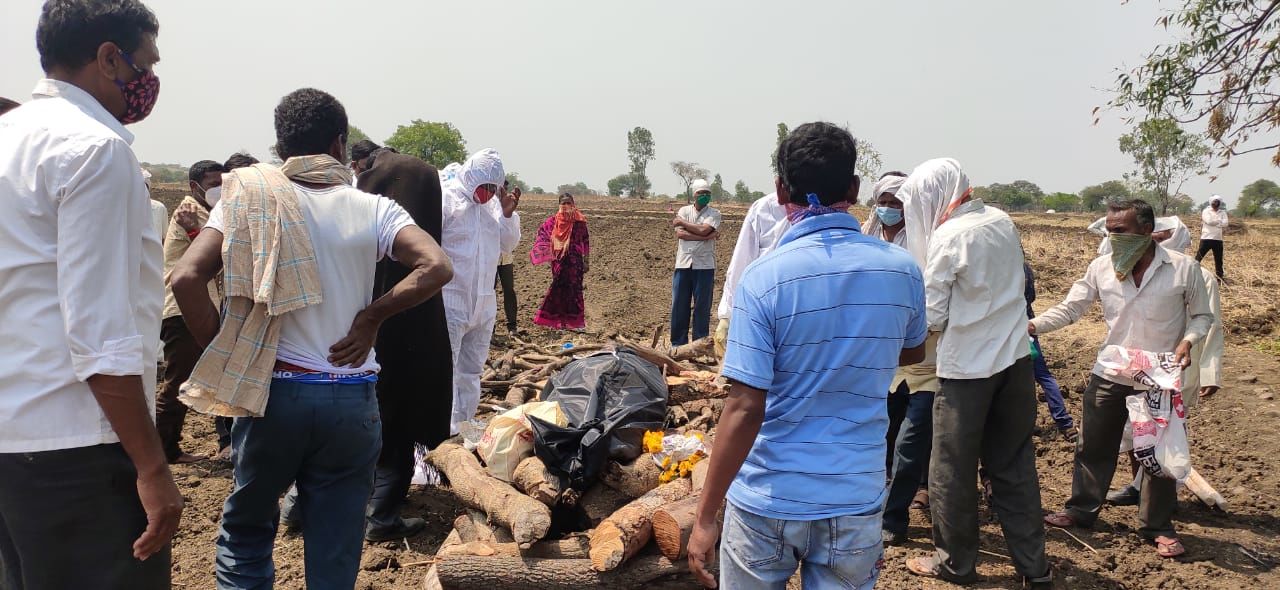
Sheikh, who holds a Masters and a B.Ed degree, found mention in the Mann Ki Baat radio programme, on April 30, 2017, where Prime Minister Narendra Modi praised him. Closer home, chief minister of Maharashtra, Uddhav Thackeray had also tweeted, lauding him for his social work during the pandemic last year.
“These people are doing what the victims’ family members are failing to do,” Dataji Patil, a councillor at Udgir told Gaon Connection. “This time all the systems have proven inadequate against Coronavirus,” he said. There was a shortage of oxygen and the Remdesivir drug. And there was also a high incidence of non-Covid related deaths as hospitals were unable to treat other ailments. The last rites of these people were performed either by the municipality or by non-profits like Roti Kapda, he said.
“In view of their exemplary work, the municipality has entrusted them with the responsibility of running shelters for homeless people in the city for a period of three years,” Patil said.
Meanwhile, Sheikh received another call for help and he prepared to drive off. “This time, the Coronavirus has proved to be many times more dangerous than last year,” he said. A lot more needs to be done and a lot more can be done. “For the moment, we are working with whatever resources God has provided us,” he said.
Also Read: Meet these tribal women who have donned the role of Corona Warriors in this pandemic

